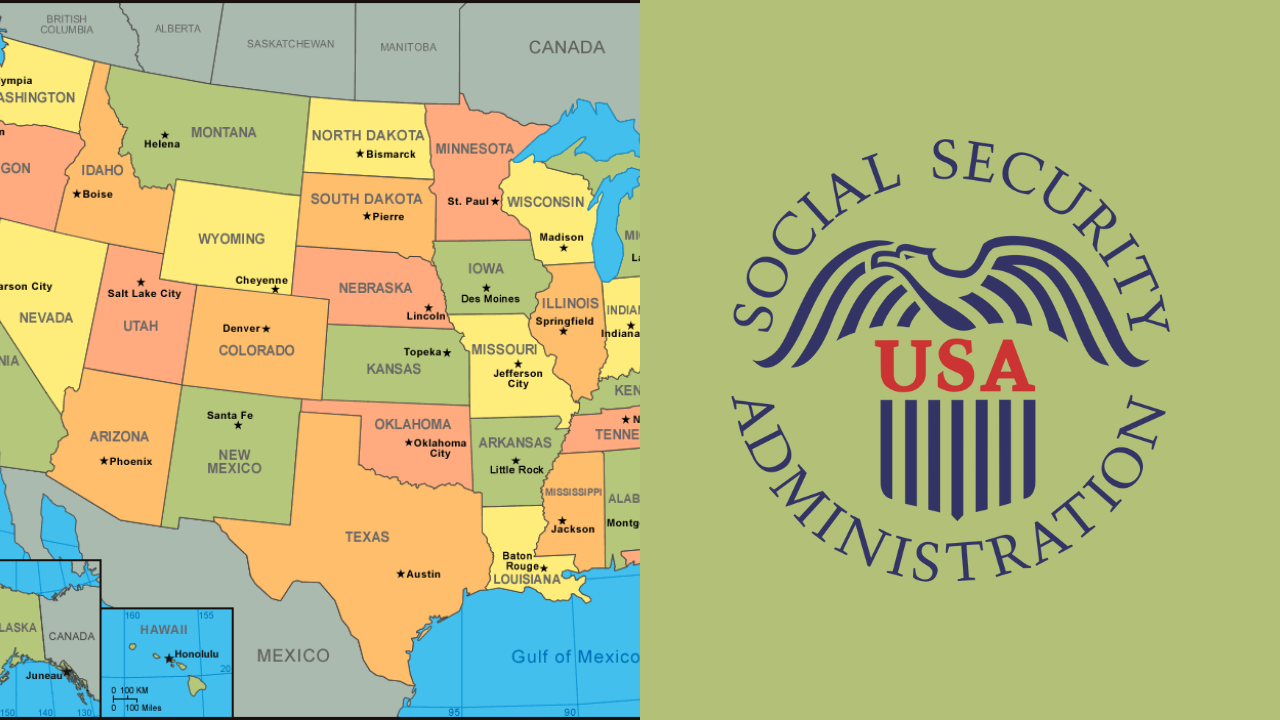Planning for retirement involves understanding how your savings and Social Security benefits will sustain you.
The longevity of $250,000 in savings, when combined with Social Security income, varies significantly across the United States due to differences in cost of living, taxation, and healthcare expenses.
This article examines how far $250,000 in savings plus Social Security can go in each state, providing insights to help you plan effectively.
Understanding Social Security Benefits
Social Security benefits are calculated based on your earnings history and the age at which you begin receiving them.
In 2024, the average monthly Social Security benefit for retired workers is approximately $1,800. However, this amount can vary based on individual earnings and the age at which you start claiming benefits.
Factors Influencing Retirement Sustainability
Several factors affect how far your savings and Social Security will stretch:
- Cost of Living: States with lower living costs allow your money to last longer.
- State Taxes: Some states tax retirement income, including Social Security benefits, while others do not.
- Healthcare Costs: Healthcare expenses can vary, impacting your retirement budget.
State-by-State Analysis

Below is an overview of how $250,000 in savings, combined with the average Social Security benefit, fares in each state:
- Alabama: With a lower cost of living and no state income tax on Social Security benefits, your retirement funds can last longer.
- Alaska: Despite no state income tax, Alaska’s high cost of living means your savings may deplete faster.
- Arizona: Moderate living costs and favorable tax policies make Arizona a viable option for retirees.
- Arkansas: Low living expenses and no taxation on Social Security benefits contribute to a longer-lasting retirement fund.
- California: High living costs and state taxes can significantly reduce the longevity of your savings.
- Colorado: While offering a good quality of life, Colorado’s cost of living can shorten the duration of your retirement funds.
- Connecticut: High living expenses and state taxes on retirement income can deplete savings more quickly.
- Delaware: No state sales tax and moderate living costs make Delaware favorable for retirees.
- Florida: No state income tax and a lower cost of living contribute to a longer-lasting retirement fund.
- Georgia: Affordable living and favorable tax policies enhance the sustainability of your retirement savings.
- Hawaii: High living costs can significantly reduce the duration of your retirement funds.
- Idaho: Moderate living costs and favorable tax policies make Idaho a good choice for retirees.
- Illinois: High property taxes and state taxes on retirement income can deplete savings faster.
- Indiana: Low living costs and favorable tax policies contribute to a longer-lasting retirement fund.
- Iowa: Moderate living costs and state taxes on retirement income can impact the longevity of your savings.
- Kansas: Affordable living and favorable tax policies enhance the sustainability of your retirement funds.
- Kentucky: Low living costs and no taxation on Social Security benefits make Kentucky favorable for retirees.
- Louisiana: Moderate living costs and favorable tax policies contribute to a longer-lasting retirement fund.
- Maine: High property taxes and state taxes on retirement income can deplete savings faster.
- Maryland: High living costs and state taxes on retirement income can impact the longevity of your savings.
- Massachusetts: High living costs and state taxes on retirement income can significantly reduce your retirement funds.
- Michigan: Moderate living costs and favorable tax policies make Michigan a viable option for retirees.
- Minnesota: High living costs and state taxes on retirement income can deplete savings more quickly.
- Mississippi: Low living costs and no taxation on Social Security benefits contribute to a longer-lasting retirement fund.
- Missouri: Affordable living and favorable tax policies enhance the sustainability of your retirement savings.
- Montana: Moderate living costs and state taxes on retirement income can impact the longevity of your savings.
- Nebraska: Moderate living costs and state taxes on retirement income can deplete savings faster.
- Nevada: No state income tax and a lower cost of living contribute to a longer-lasting retirement fund.
- New Hampshire: No state income tax and moderate living costs make New Hampshire favorable for retirees.
- New Jersey: High living costs and state taxes on retirement income can significantly reduce your retirement funds.
- New Mexico: Affordable living and favorable tax policies enhance the sustainability of your retirement savings.
- New York: High living costs and state taxes on retirement income can deplete savings more quickly.
- North Carolina: Moderate living costs and favorable tax policies make North Carolina a viable option for retirees.
- North Dakota: Low living costs and favorable tax policies contribute to a longer-lasting retirement fund. 35.
Note: Every piece of content is rigorously reviewed by our team of experienced writers and editors to ensure its accuracy. Our writers use credible sources and adhere to strict fact-checking protocols to verify all claims and data before publication. If an error is identified, we promptly correct it and strive for transparency in all updates, feel free to reach out to us via email. We appreciate your trust and support!



Leave a Reply